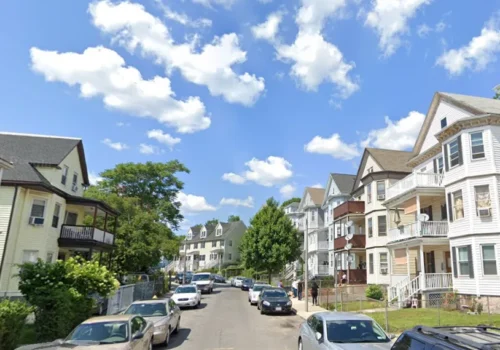
While these symptoms are more severe than Stage 1, they are not life-threatening. Just like a broken bone or infection needs time to heal, so does an overworked liver. While this depends on the amount of alcohol you have had over the years, your liver can see partial healing within two to three weeks, but this will depend on your health history.
Outpatient Treatment
- Signs of an impending seizure include tremors, increased blood pressure, overactive reflexes, and high temperature and pulse.
- Alcohol detox can lead to potentially fatal complications, especially in severe cases of alcohol dependence.
- It also ensures your body has proper nutrition to maintain stamina during the stress it will go through during detox.
- Not all people progress through all of the stages of alcohol withdrawal.
- Anyone wishing to quit alcohol should speak with a doctor before attempting to detox.
- These symptoms generally appear 12 to 24 hours after your last drink.
People who drink a significant amount or drink on a regular basis can develop a chemical dependence on the substance. When they suddenly stop giving the body the substance it has become dependent on, it can send the body, brain and neurotransmitters into shock. alcohol detox A person with delirium tremens needs to be hospitalized until the symptoms can be controlled. If left untreated, withdrawal can progress to complicated alcohol withdrawal. These symptoms generally appear 12 to 24 hours after your last drink.
More on Substance Abuse and Addiction
Feeling at your best physically can boost resilience and emotional strength, equipping you to weather challenges that trigger the desire to drink. Letting others know about your choice to stop drinking may help motivate you to stick with https://ecosoberhouse.com/ your decision. What’s most important is looking at your drinking habits and finding a way to cut back that works for you.
Typical Treatments
Dietary guidelines recommend that if you drink, men limit daily drinking to two drinks or less per day and women limit their drinking to one drink or less per day. Consuming more than that can lead to liver damage and heart disease, and increase your risk for some cancers. That said, If you’ve been drinking excessively, then stopping drinking cold turkey can lead to withdrawal symptoms. The main management for severe symptoms is long-acting benzodiazepines — typically IV diazepam or IV lorazepam. You can still pursue therapy and support groups as you go through withdrawal.
- Primary care physicians should offer to initiate appropriate medications.
- Maybe you’ve never been interested in logging your innermost thoughts, but journaling can be a great tool to track your feelings as you work on quitting alcohol.
- It allows you to manage alcohol withdrawal symptoms in the comfort of your own home with little cost.
In addition to physical symptoms, a person will likely experience some psychological side effects, such as alcohol cravings or anxiety. Similar to the first full day of detox, the most painful symptoms will continue into the second day. Hallucinations and panic attacks are common during this time as your body rids alcohol from its system. As you approach the end of the first 24 hours of detox, symptoms may become increasingly severe. Alongside the effects felt from the first 12 hours, additional symptoms may involve disorientation, hand tremors and seizures. Detoxing from alcohol is one of the most dangerous types of detoxes that your body can undergo.
We publish material that is researched, cited, edited and reviewed by licensed medical professionals. The information we provide is not intended to be a substitute for professional medical advice, diagnosis or treatment. It should not be used in place of the advice of your physician or other qualified healthcare providers. Alcohol detox programs evaluate and monitor withdrawal symptoms, physical health, and mental health. Some people are apprehensive to quit drinking because they’re nervous about the withdrawal symptoms experienced during alcohol detox. While some people may only be affected by minor effects of alcoholism, others may face extreme pain.
Lifestyle and home remedies
- When you stop consuming alcohol after prolonged, heavy use, your CNS can’t respond or regulate itself fast enough.
- If you have a pattern of suddenly feeling very sick after consuming alcohol, you may have developed sudden onset alcohol intolerance.
- These conditions include gastrointestinal bleeding, infection, intracranial hemorrhage (acute bleeding in the brain), and liver failure.
- Medications can also help keep a person’s body chemicals in balance, lowering the risk for serious complications.
- This may include medications, therapy, or both and can be offered in a variety of settings, both inpatient, outpatient, or a hybrid model.
- Unlike other medications, disulfiram works by producing severe reactions if alcohol is consumed.
Keep a list of emergency phone numbers on hand that includes contact info for your doctor, the police, a nearby hospital, and someone you trust. If you’re having difficulty sticking to your goal or just want some extra guidance, consider reaching out for professional support. You might run into obstacles along the way that tempt you to drink.
You might also take anti-seizure meds and antipsychotics, along with other drugs. Multiple factors can affect how long it may take you to withdraw from alcohol. A doctor will consider all these factors when estimating how long-lasting and how severe your symptoms may be. Doctors may prescribe other medications to treat withdrawal-related symptoms. One example is a beta-blocker (such as propranolol) to reduce high blood pressure. BetterHelp can connect you to an addiction and mental health counselor.
